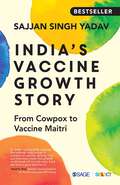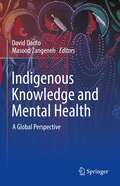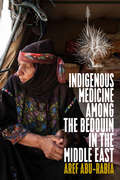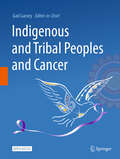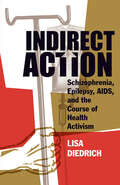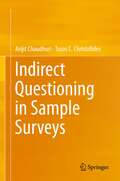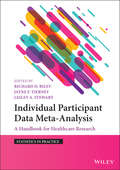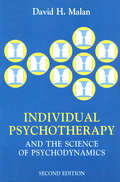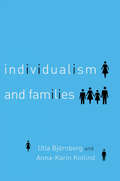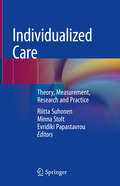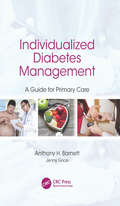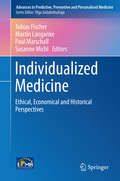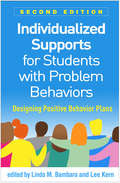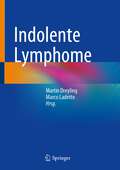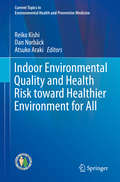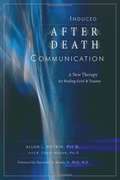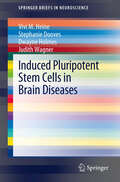- Table View
- List View
India’s Vaccine Growth Story: From Cowpox to Vaccine Maitri
by Sajjan Singh YadavDid you know that vaccines save 3 million lives annually? This potent group of weapons has notably annihilated smallpox, pushed polio to the verge of elimination and is now taking on COVID-19 as the dreaded virus keeps changing forms to survive in its fierce battle with humankind. Indians practised inoculation centuries before the West discovered vaccines in 1796. India’s Vaccine Growth Story charts the journey of vaccines from the Jennerian era to the COVID-19 pandemic, covering multiple facets of vaccines, from the Indian and global perspective. Apart from discussing vaccine leadership, vaccine nationalism, vaccine hesitancy, eagerness and equity, as well as the latest diplomatic currency—the vaccine-maitri, the book also tracks the decade-long vaccine development cycle that was drastically cut short to a few months, taking readers through India’s exciting and meticulously-planned sojourn of executing the world’s largest vaccination drive.
Indigenous Communalism: Belonging, Healthy Communities, and Decolonizing the Collective
by Carolyn Smith-MorrisFrom a grandmother’s inter-generational care to the strategic and slow consensus work of elected tribal leaders, Indigenous community builders perform the daily work of culture and communalism. Indigenous Communalism conveys age-old lessons about culture, communalism, and the universal tension between the individual and the collective. It is also a critical ethnography challenging the moral and cultural assumptions of a hyper-individualist, twenty-first century global society. Told in vibrant detail, the narrative of the book conveys the importance of communalism as a value system present in all human groups and one at the center of Indigenous survival. Carolyn Smith-Morris draws on her work among the Akimel O'odham and the Wiradjuri to show how communal work and culture help these communities form distinctive Indigenous bonds. The results are not only a rich study of Indigenous relational lifeways, but a serious inquiry to the continuing acculturative atmosphere that Indigenous communities struggle to resist. Recognizing both positive and negative sides to the issue, she asks whether there is a global Indigenous communalism. And if so, what lessons does it teach about healthy communities, the universal human need for belonging, and the potential for the collective to do good?
Indigenous Knowledge and Mental Health: A Global Perspective
by Masood Zangeneh David DantoThis book brings together Indigenous and allied experts addressing mental health among Indigenous peoples across the traditional territories commonly known as the Americas (e.g. Canada, US, Caribbean Islands, Mexico, Bolivia, Venezuela, Ecuador and Brazil), Asia (e.g. China, Korea, Japan, Taiwan and Indonesia), Africa (e.g. South Africa, Central and West Africa) and Oceania (New Guinea and Australia) to exchange knowledge, perspectives and methods for mental health research and service delivery. Around the world, Indigenous peoples have experienced marginalization, rapid culture change and absorption into a global economy with little regard for their needs or autonomy. This cultural discontinuity has been linked to high rates of depression, substance abuse, suicide, and violence in many communities, with the most dramatic impact on youth. Nevertheless, Indigenous knowledge, tradition and practice have remained central to wellbeing, resilience and mental health in these populations. Such is the focus of this book.
Indigenous Medicine among the Bedouin in the Middle East
by Aref Abu-RabiaModern medicine has penetrated Bedouin tribes in the course of rapid urbanization and education, but when serious illnesses strike, particularly in the case of incurable diseases, even educated people turn to traditional medicine for a remedy. Over the course of 30 years, the author gathered data on traditional Bedouin medicine among pastoral-nomadic, semi-nomadic, and settled tribes. Based on interviews with healers, clients, and other active participants in treatments, this book will contribute to renewed thinking about a synthesis between traditional and modern medicine - to their reciprocal enrichment.
Indigenous and Tribal Peoples and Cancer
Although cancer survival has improved markedly in developed countries in recent decades, not all groups have benefited equally. In particular, Indigenous and Tribal peoples continue to have poorer cancer outcomes than their non-Indigenous counterparts. The available evidence suggests these disparities are linked to a complex combination of factors, including higher incidence of cancers associated with a high case fatality, later stage of diagnosis, reduced access to cancer treatment, and poorer overall health. Much research is underway to explore approaches to improving health system responses for Indigenous and Tribal peoples. A developing evidence base is supporting effective translation of knowledge into practice. This book offers a global perspective on this evidence base, written from Indigenous perspectives. This book is the first comprehensive publication to report on cancer incidence, mortality, prevalence, survival, and inequities for Indigenous and Tribal peoples globally, with the aim of enhancing global efforts to improve outcomes for these populations. Its content and approach are led by Indigenous researchers with international reputations in health and cancer research. Chapters provide important information and data to support Indigenous-specific, targeted cancer awareness and early detection campaigns. This book goes beyond a discussion of the issues and challenges in Indigenous health, with a strengths-based approach to discussing successful health interventions, research projects, research translation, and living well – both with and beyond cancer. This is an open access book.
Indirect Action: Schizophrenia, Epilepsy, AIDS, and the Course of Health Activism
by Lisa DiedrichThe experience of illness (both mental and physical) figures prominently in the critical thought and activism of the 1960s and 1970s, though it is largely overshadowed by practices of sexuality. Lisa Diedrich explores how and why illness was indeed so significant to the social, political, and institutional transformation beginning in the 1960s through the emergence of AIDS in the United States. A rich intervention—both theoretical and methodological, political and therapeutic—Indirect Action illuminates the intersection of illness, thought, and politics.Not merely a revision of the history of this time period, Indirect Action expands the historiographical boundaries through which illness and health activism in the United States have been viewed. Diedrich explores the multiplicity illness–thought–politics through an array of subjects: queering the origin story of AIDS activism by recalling its feminist history; exploring health activism and the medical experience; analyzing psychiatry and self-help movements; thinking ecologically about counterpractices of generalism in science and medicine; and considering the experience and event of epilepsy and the witnessing of schizophrenia. Indirect Action places illness in the leading role in the production of thought during the emergence of AIDS, ultimately showing the critical interconnectedness of illness and political and critical thought.
Indirect Questioning in Sample Surveys
by Tasos C. Christofides Arijit ChaudhuriIndirect questioning is a crucial topic in surveys of human populations. When the issue is about a stigmatizing characteristic (for example about illegal drug use), standard survey methodologies are destined to fail because, as expected, people are not willing to reveal incriminating information or information violating their privacy. Indirect questioning techniques have been devised so that the privacy of participants in a sample survey is protected and at the same time good estimates of certain parameters (e.g. the percentage of people in a certain community who use illegal drugs) can be delivered. The topic is modern and still under development. Indirect Questioning in Sample Surveys represents a collection of the most important and recent techniques of indirect questioning, including various versions of randomized response, the item count technique, the nominative technique, the three-card method, non-randomized response models and negative surveys, while also exploring the key aspect of protecting privacy.
Individual Participant Data Meta-Analysis: A Handbook for Healthcare Research (Statistics in Practice)
by Richard D. Riley Jayne F. Tierney Lesley A. StewartIndividual Participant Data Meta-Analysis: A Handbook for Healthcare Research provides a comprehensive introduction to the fundamental principles and methods that healthcare researchers need when considering, conducting or using individual participant data (IPD) meta-analysis projects. Written and edited by researchers with substantial experience in the field, the book details key concepts and practical guidance for each stage of an IPD meta-analysis project, alongside illustrated examples and summary learning points. Split into five parts, the book chapters take the reader through the journey from initiating and planning IPD projects to obtaining, checking, and meta-analysing IPD, and appraising and reporting findings. The book initially focuses on the synthesis of IPD from randomised trials to evaluate treatment effects, including the evaluation of participant-level effect modifiers (treatment-covariate interactions). Detailed extension is then made to specialist topics such as diagnostic test accuracy, prognostic factors, risk prediction models, and advanced statistical topics such as multivariate and network meta-analysis, power calculations, and missing data. Intended for a broad audience, the book will enable the reader to: Understand the advantages of the IPD approach and decide when it is needed over a conventional systematic review Recognise the scope, resources and challenges of IPD meta-analysis projects Appreciate the importance of a multi-disciplinary project team and close collaboration with the original study investigators Understand how to obtain, check, manage and harmonise IPD from multiple studies Examine risk of bias (quality) of IPD and minimise potential biases throughout the project Understand fundamental statistical methods for IPD meta-analysis, including two-stage and one-stage approaches (and their differences), and statistical software to implement them Clearly report and disseminate IPD meta-analyses to inform policy, practice and future research Critically appraise existing IPD meta-analysis projects Address specialist topics such as effect modification, multiple correlated outcomes, multiple treatment comparisons, non-linear relationships, test accuracy at multiple thresholds, multiple imputation, and developing and validating clinical prediction models Detailed examples and case studies are provided throughout.
Individual Psychotherapy and the Science of Psychodynamics, 2Ed
by Lynn Parker David MalanDr Malan's iconic book is firmly established as a classic psychotherapy textbook and it remains extremely popular. The second edition of this highly individual and fascinating text brings theory and practice up to date, while keeping the essential character of the book unchanged.The book offers an invaluable description of dynamic psychotherapy and
Individual-based Methods in Forest Ecology and Management
by Arne Pommerening Pavel GrabarnikModel-driven individual-based forest ecology and individual-based methods in forest management are of increasing importance in many parts of the world. For the first time this book integrates three main fields of forest ecology and management, i.e. tree/plant interactions, biometry of plant growth and human behaviour in forests. Individual-based forest ecology and management is an interdisciplinary research field with a focus on how the individual behaviour of plants contributes to the formation of spatial patterns that evolve through time. Key to this research is a strict bottom-up approach where the shaping and characteristics of plant communities are mostly the result of interactions between plants and between plants and humans. This book unites important methods of individual-based forest ecology and management from point process statistics, individual-based modelling, plant growth science and behavioural statistics. For ease of access, better understanding and transparency the methods are accompanied by R code and worked examples.
Individualism and Families: Equality, Autonomy and Togetherness
by Ulla Bjornberg Anna-Karin KollindAlmost all women and men claim that gender equality within their relationships is the ideal. In practice, however, equality is not predominant within many couples and families. This book develops current debates about individualisation within families – particularly how partners understand and resolve tensions between the need for togetherness and personal autonomy, and how partners view and work with increasing gender equality. Individualism and Families is based on a large Swedish study from two of the foremost European experts on the sociology of the family. The study looks particularly at partnering, parenting, intimacy, commitments, attitudes to finances and gender divisions of labour.
Individualized Care: Theory, Measurement, Research And Practice
by Riitta Suhonen Minna Stolt Evridiki PapastavrouThis contributed book is based on more than 20 years of researches on patient individuality, care and services of the continuously changing healthcare system. It describes how research results can be used to respond to challenges on individuality in healthcare systems. Service users’, patients’ or clients’ point of views on care and health services are urgently needed. This book describes the conceptualisation of the individualized nursing care phenomenon and the process development of the measuring instruments of that phenomenon in different contexts. It describes results from a variety of clinical contexts about individualized nursing care and explains factors associated with the perceptions and delivery of individualized nursing care from different point of views. This book may appeal to clinicians, nurses practitioners and researchers from many fields.
Individualized Diabetes Management: A Guide for Primary Care
by Anthony Barnett Jenny GriceIn the past few decades a revolution in our approach to treating type 2 diabetes has occurred following the recognition that the condition is caused by multiple defects. A range of new treatments are now available, with many more forthcoming, utilising differing mechanisms of action that allow targeted and more effective therapy of this multifactorial disease than ever before. <P><P>The increasing requirement in the UK to move much of diabetes practice into the community requires much more detailed knowledge of the condition by GPs and practice nurses. In this bespoke book, the authors aim to show how new mechanisms of glucose control and advances in treatments arising from this can tailor treatment to the individual in primary care. This book incorporates the recently published ADA/EASD guidelines and the 2015 update from the National Institute for Health and Clinical Excellence (NICE). <P><P>Essential reading for the multi-professional diabetes care team, this book should also be of interest to hospital specialists in training.
Individualized In-Vitro Fertilization: Delivering Precision Fertility Treatment
by Human M. Fatemi Barbara LawrenzThe increasing understanding of individual differences in response to in-vitro fertilization (IVF) treatment, resulting from genetic and ethnical differences, has increased the potential for individualized treatment for patients, resulting in improved pregnancy and live-birth outcomes. This illustrated book summarizes, and provides updates on, the most recent developments in individualized infertility treatment and embryo selection techniques. Individualization is not only confined to the different steps in the ovarian stimulation process and the luteal phase support, but also to embryo selection techniques, which include, among others, the analysis of embryo development pattern and genetic testing. Chapters cover a multitude of topics, ranging from oocyte maturation and immunological testing to fertilization technique in the IVF laboratory and preparation for optimal endometrial receptivity in cryo cycles. Essential reading for IVF specialists and embryologists in IVF Clinics and also an important text for medical consultants specializing in reproductive medicine, gynecology and embryology.
Individualized Medicine
by Martin Langanke Tobias Fischer Paul Marschall Susanne MichlIn 2009 the University Medicine Greifswald launched the "Greifswald Approach to Individualized Medicine" (GANI_MED) to implement biomarker-based individualized diagnostic and therapeutic strategies in clinical settings. Individualized Medicine (IM) has led not only to controversies about its potentials, but also about its societal, ethical and health economic implications. This anthology focusses on these areas and includes - next to clinical examples illustrating how the integrated analysis of biomarkers leads to significant improvement of therapeutic outcomes for a subgroup of patients - chapters about the definition, history and epistemology of IM. Additionally there is a focus on conceptual philosophical questions as well as challenges for applied research ethics (informed consent process, the IT-based consent management and the handling of incidental findings). Finally it pays attention to health economic aspects. The possibilities of IM to initiate a paradigm shift in the German health care provision are investigated. Furthermore, it is asked whether the G-DRG system is ready for the implementation of such approaches into clinical routine.
Individualized Supports for Students with Problem Behaviors, Second Edition: Designing Positive Behavior Plans (The\guilford School Practitioner Ser.)
by Linda M. Bambara Lee KernNoted for providing everything needed to develop individualized positive behavior support (PBS) plans for students with pervasive behavioral challenges, this authoritative guide has been revised and expanded to reflect 15 years of changes in the field. The book walks practitioners through the PBS process, emphasizing a team-based approach and presenting assessment procedures, intervention strategies, and guiding questions. Detailed case examples illustrate ways to meet the diverse needs of students across abilities, grade levels (PreK–12), and problem behaviors. In a convenient large-size format, the book follows the sequence of a typical PBS course, making it ideal for use in teaching and training. New to This Edition *Incorporates current tools and practices within an expanded, whole-school PBS approach. *Chapters on multi-tiered systems of support and the fundamentals of classroom management. *Chapter on writing, monitoring, and evaluating a complete PBS plan. *Two extended case examples that run through many of the chapters. *&“Commentaries from the Field&” in which leading experts reflect on the contributions, challenges, and future directions of PBS.
Indolent Lymphomas (Hematologic Malignancies)
by Martin Dreyling Marco LadettoThis book provides a comprehensive overview of current treatment strategies in indolent lymphomas, the clinical management of which continues to pose significant challenges for the general oncologist despite the tremendous progress in diagnosis, evaluation of risk factors, and molecular targeted approaches. Experts in the field from around the world describe the histomorphology in a clinically relevant manner, consider the role of risk factors in detail, and discuss the full spectrum of therapeutic approaches. Special emphasis is placed on the translation of molecular science into clinical care, and a disease-specific algorithm is proposed for each entity. The coverage encompasses follicular lymphoma, MALT, nodal marginal zone lymphoma, splenic marginal zone lymphoma, Waldenström’s macroglobulinemia, hairy cell leukemia, chronic lymphocytic leukemia, mycosis fungoides, large granular lymphocytic leukemia, and also mantle cell lymphoma. The book will be an excellent resource for experienced and inexperienced practitioners alike.
Indolente Lymphome
by Martin Dreyling Marco LadettoDieses Buch bietet einen umfassenden Überblick über die aktuellen Behandlungsstrategien bei indolenten Lymphomen, deren klinische Behandlung den Allgemeinonkologen trotz der enormen Fortschritte bei der Diagnose, der Bewertung von Risikofaktoren und molekularen zielgerichteten Ansätzen weiterhin vor große Herausforderungen stellt. Experten auf diesem Gebiet aus aller Welt beschreiben die Histomorphologie in klinisch relevanter Weise, gehen detailliert auf die Rolle der Risikofaktoren ein und erörtern das gesamte Spektrum der therapeutischen Ansätze. Besonderer Wert wird auf die Umsetzung molekularwissenschaftlicher Erkenntnisse in die klinische Versorgung gelegt, und für jede Entität wird ein krankheitsspezifischer Algorithmus vorgeschlagen. Behandelt werden das follikuläre Lymphom, das MALT-Lymphom, das nodale Marginalzonen-Lymphom, das Milz-Marginalzonen-Lymphom, die Waldenström-Makroglobulinämie, die Haarzell-Leukämie, die chronische lymphatische Leukämie, die Mycosis fungoides, die großkörnige lymphatische Leukämie und auch das Mantelzell-Lymphom. Das Buch ist ein hervorragendes Hilfsmittel für erfahrene und unerfahrene Ärzte gleichermaßen.
Indoor Air Quality in Healthcare Facilities
by Stefano Capolongo Gaetano Settimo Marco GolaThis interdisciplinary guide offers background, research findings, and practical strategies for assessing and improving air quality in hospitals and other healthcare settings. Positing good air quality as critical to patient and staff wellbeing, it identifies disease-carrying microbes, pollutants, and other airborne toxins and their health risks, and provides localized interventions for reducing transmission of pathogens. Effective large-scale approaches to air quality control are also outlined, from green building materials to hygienic HVAC and air treatment practices. Its thoroughness of coverage makes this book a vital resource for professionals involved in every aspect of health service facilities, from planning and construction to maintenance and management. Among the topics covered: #65533; Existing guidelines in indoor air quality: the case study of hospital environments #65533; Analysis of microorganisms in hospital environments and potential risks #65533; Legionella indoor air contamination in healthcare environments #65533; HVAC system design in healthcare facilities and control of aerosol contaminants #65533; Assessment of indoor air quality in inpatient wards Indoor Air Quality in Healthcare Facilities imparts up-to-date expertise to a variety of professional readers, including hospitals' technical and management departments, healthcare facilities' chief medical officers, hospital planners, sport and thermal building designers, public health departments, and students of universities and schools of hygiene.
Indoor Air Quality: Occurrence and Health Effects of Contaminants
by Hermann FrommeThis book presents a comprehensive and detailed overview of indoor pollution, covering the main contaminants in the indoor environment – air and dust, the health aspects of exposure, and different possibilities for a risk assessment. The book outlines the chemical substances and physical and biological factors that occur more frequently indoors, which are of health significance, or for which only limited information on their occurrence indoors is available to date. It also provides guidance to identify where problems may arise in the future and where data is missing for a valid exposure and risk assessment as well as for consequent risk management. Written by a highly recognized and experienced medical expert in the field, the book starts with an introduction to the indoor environment, including topics such as indoor environmental quality and health, indoor climate, sampling of indoor pollutants, and measures to improve indoor air quality. The author then delves into the fundamentals of exposure assessment and special exposure indoor situations, followed by in-depth coverage of the health aspects, and indoor air occurrence of several substances such as volatile organic compounds, very volatile organic compounds, semi-volatile organic compounds, and particulate matters and fibers. Particular attention is given to bioaerosols like mold, microbial volatile organic compounds, mycotoxins, and viruses. Readers will also find chapters devoted to the main health aspects and indoor occurrence of inorganic gases, radon and metals, and smoking. The book closes with a chapter on risk assessment, in which readers will learn more about the basics of risk assessment, key points and processes of a health evaluation, and guidance for assessing indoor air contamination. This book is a unique compilation of the current worldwide exposure situation in private and public indoor spaces, and an important reference for researchers that are willing to assess the rising burden of disease and potential causes behind degraded indoor air quality. Scientists, students, and policymakers interested in the fields of medicine and environmental sciences will understand the appeal of this book.
Indoor Environmental Quality and Health Risk toward Healthier Environment for All (Current Topics in Environmental Health and Preventive Medicine)
by Reiko Kishi Dan Norbäck Atsuko ArakiThis volume discusses the effects of indoor air environment and pollution in modern buildings on human health. Highlighting epidemiological studies and the determining factors, it offers proposals for improving indoor air quality (IAQ) in different environments. Focusing not only on homes and offices, but also vehicles and aircrafts, it details practical methods of measuring and assessing indoor air quality. Written by pioneering researchers, Indoor Environmental Quality and Health Risk toward Healthier Environment for All is a valuable resource for both new and established researchers as well as students seeking a comprehensive overview of the facts on indoor air quality and health. Also is also of interest to hygiene experts in industry, occupational health and safety professionals, governmental public health sectors and school physicians.
Indoor Environmental Quality: Select Proceedings of the 1st ACIEQ (Lecture Notes in Civil Engineering #60)
by Arun Sharma Radha Goyal Richie MittalThis volume presents selected papers presented during the First Asian Conference on Indoor Environmental Quality (ACIEQ). The contents cover themes of indoor air quality monitoring and modeling; the influence of confounding factors like thermal comfort parameters, such as temperature and relative humidity with respect to different building types, e.g., residential, commercial, institutional; ventilation characteristics, lighting and acoustics. It also focuses on people's performance, productivity, and behavior with respect to their exposure to various indoor air pollutants and parameters influencing the overall indoor environmental quality. This volume is primarily aimed at researchers working in environmental science and engineering, building architecture and design, HVAC and ventilation, public health, and epidemiology. The contents of this volume will also be useful to policy makers working on occupational health and building codes.
Induced After Death Communication: A New Therapy for Healing Grief and Trauma
by Allan L. Botkin R. Craig HoganInduced After-Death Communication (IADC) is a new therapy for grief and trauma that has helped thousands of people come to terms with their grief by allowing them the experience of private communication with their departed loved ones. Botkin, a clinical psychologist, created the therapy while counseling Vietnam veterans in his work at a Chicago area VA hospital. Botkin recounts his initial accidental discovery of IADC during therapy sessions with Sam, a Vietnam vet haunted by the memory of a Vietnamese girl he couldn't save. During the session, quite unexpectedly, Sam saw a vision of the girl's spirit, who told him everything was okay; she was at peace now. This single moment surpassed months-years-of therapy, and allowed Sam to reconnect with his family. Since that 1995 discovery, Botkin has honed IADC and used it to successfully treat countless patients-the book includes dozens of case examples-and has taught the procedure to therapists around the country. Induced After-Death Communication is the inside story of a revolutionary therapy that will profoundly affect how grief and trauma are understood and treated.
Induced Effects Of Genotoxic Agents In Eukaryotic Cells
by Toby G. RossmanThis book provides an understanding of the consequences of induced proteins in the toxicological response of cells to chemical and radiation damage to DNA and will be helpful in creating proper mathematical models for extrapolation to low doses and assessing human exposure or cellular injury.
Induced Pluripotent Stem Cells in Brain Diseases
by Dwayne Holmes Judith Wagner Vivi M. Heine Stephanie DoovesBrain diseases can have a large impact on patients and society, and treatment is often not available. A new approach in which somatic cells are reprogrammed into induced pluripotent cells (iPS cells) is a significant breakthrough for regenerative medicine. This promises patient-specific tissue for replacement therapies, as well as disease-specific cells for developmental modeling and drug treatment screening. However, this method faces issues of low reprogramming efficiency, and poorly defined criteria for determining the conversion of one cell type to another. Cells contain epigenetic "memories" of what they were that can affect reprogramming. This book discusses the various methods to reprogram cells, the control and determination of cell identity, the epigenetic models that have emerged and the application of iPS cell therapy for brain diseases, in particular Parkinson's disease and Vanishing White Matter (VWM).
